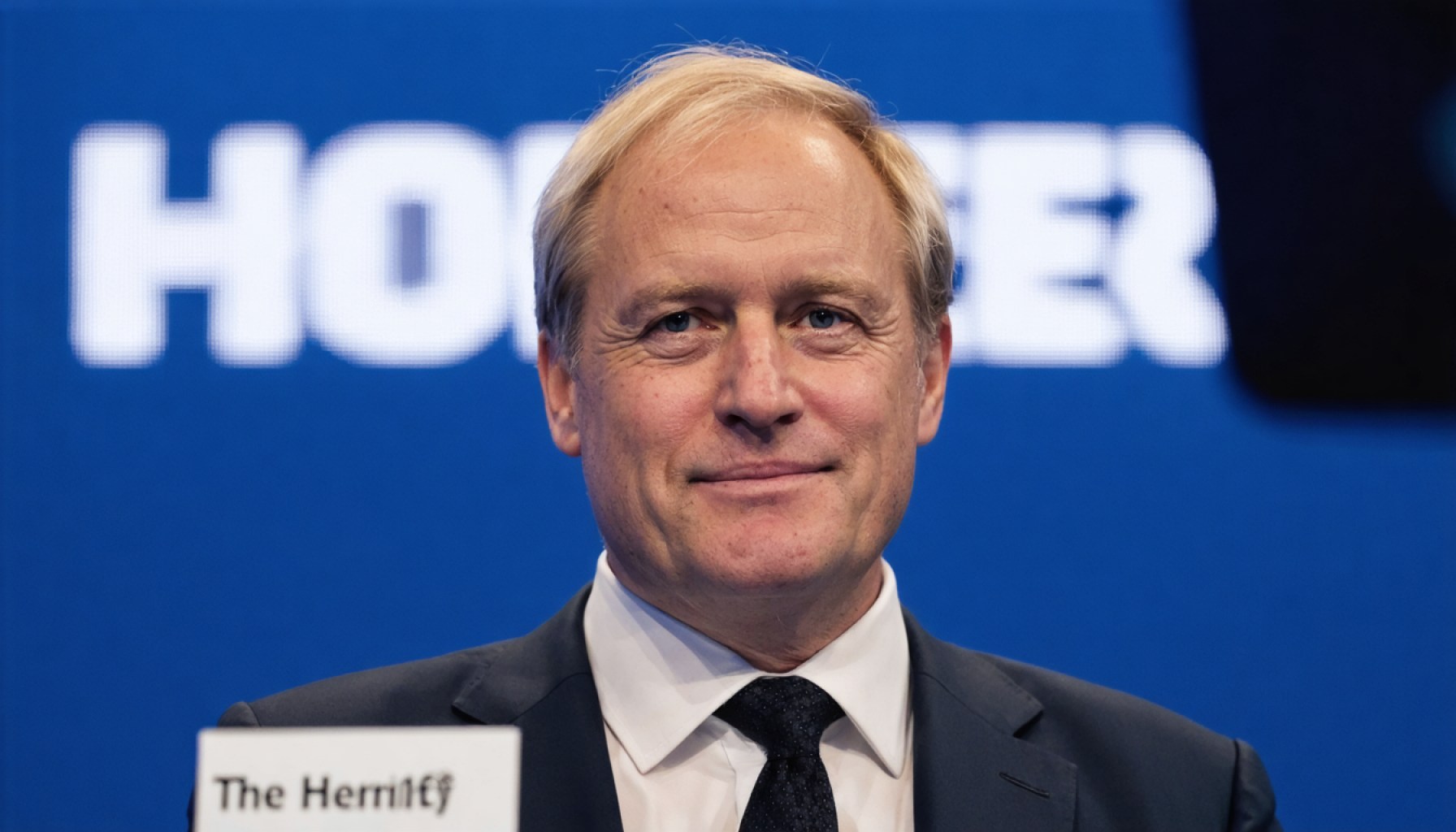- Friedrich Merz is favored to become Germany’s next Chancellor in the 2025 Bundestag election.
- The Economic Ministry is a focal point, with key candidates including Carsten Linnemann, Jens Spahn, and Alexander Dobrindt.
- Carsten Linnemann, a prominent CDU figure, is noted for his deep economic expertise and connection to the Mittelstand sector.
- Jens Spahn, a former Health Minister, aims to broaden his political influence with a focus on economic policy and energy issues.
- Alexander Dobrindt, from the CSU, combines experience in transport and economic affairs, presenting both opportunity and challenge.
- The selection of the Economic Minister will significantly influence Germany’s future amid global economic complexities.
- The decision requires a candidate with both policy expertise and visionary leadership.
Berlin finds itself abuzz with anticipation. Early forecasts for the 2025 Bundestag election situate Friedrich Merz as Germany’s likely next Chancellor. The whispers don’t stop there—they spill into speculation about who will command the powerful Economic Ministry. As the political tides gather, several names rise to the surface, each accompanied by a blend of political clout and economic acumen.
The analytical Carsten Linnemann stands distinct. His journey from an economist at Deutsche Bank to an influential CDU figure paints the portrait of someone who could effortlessly transition into the role of Economic Minister. His roots run deep in the country’s economic landscape, and his experience with the Mittelstand—the backbone of the German economy—fortifies his candidacy.
However, the narrative thickens. Jens Spahn, with his ambition as vivid as his controversial statements, steps into the frame. Renowned for his tenure as Health Minister, Spahn eyes an opportunity beyond his past role, eager to dive into fresh, uncharted waters. His recent critiques of energy policy underscore his readiness to tackle hefty economic challenges.
Meanwhile, Alexander Dobrindt, with his history in transport and leadership within the CSU, is another contender whose experience is both an asset and a constraint—a double-edged sword of political legacy and fresh ambition. His past efforts as Deputy Chairman for Economic Affairs add weight to his potential candidacy.
The question hovers: will Merz, amidst coalition discussions, surprise the political arena by looking outside his party’s borders? Regardless of the outcome, this leadership choice will chart the course for Germany’s economic voyage amidst unfolding global complexities. The path ahead demands not just policy, but conviction and vision—a combination that awaits its rightful steward.
Germany’s Future Economic Leadership: What You Need to Know
Market Trends & Industry Forecasts
As Germany anticipates the 2025 Bundestag election, the potential leadership choices for the Economic Ministry carry significant implications for the nation’s economic policies and strategies. Friedrich Merz is positioned as the likely next Chancellor, and the individuals contending for the role of Economic Minister—Carsten Linnemann, Jens Spahn, and Alexander Dobrindt—each represent different priorities and potential shifts in policy.
Carsten Linnemann: Economic Expertise
Carsten Linnemann’s deep roots in Germany’s economic landscape and affiliation with the Mittelstand make him a strong candidate. The Mittelstand, comprising numerous small and medium-sized enterprises (SMEs), is crucial to Germany’s economic stability and innovation. If Linnemann assumes the role, expect increased support for SMEs, enhanced competitiveness, and possibly more funding for innovation and digital transformation within these businesses.
Jens Spahn: A Disruptive Force
Jens Spahn is known for his critical views, particularly around energy policy. If he takes charge, there may be significant shifts towards sustainable energy policies and a push for more aggressive strategies in renewable energy adoption. This could involve reforming subsidies or implementing stricter regulations on carbon emissions, aligning with broader EU targets.
Alexander Dobrindt: Infrastructure and Legacy
Alexander Dobrindt has a track record in infrastructure and transport, positioning him as a potential advocate for investment in Germany’s transport networks and digital infrastructure. However, his past will also need balancing with fresh ideas to meet the evolving demands of a modern economy.
Controversies & Limitations
Each contender has faced criticisms. Linnemann might struggle with pushing through bold reforms due to his traditional approach. Spahn’s controversies from his time as Health Minister could resurface as points of criticism. Meanwhile, Dobrindt’s history might limit his appeal to progressive voters seeking innovation over continuity.
Pros & Cons Overview
– Linnemann:
– Pros: Economic knowledge, SME experience
– Cons: Potentially conservative approach
– Spahn:
– Pros: Energy reform focus, ambitious
– Cons: Controversial past, may face public skepticism
– Dobrindt:
– Pros: Infrastructure expertise
– Cons: Potential for clinging to past strategies without bold innovation
Actionable Recommendations
1. For Business Leaders: Keep an eye on policy announcements and strategic insights from CDU leaders that might affect tax laws, digital initiatives, and energy funding—critical areas if Linnemann or Spahn becomes Economic Minister.
2. For Investors: Evaluate sectors likely to benefit under each potential leader’s tenure—renewables under Spahn, SMEs under Linnemann, and infrastructure projects under Dobrindt—and adjust portfolios accordingly.
3. For Citizens: Engage in discussions and forums to voice concerns and priorities, ensuring that these economic leaders address the public’s desires and needs effectively.
To stay updated on Germany’s political landscape and economic forecasts, visit DW for reliable news and analysis.
